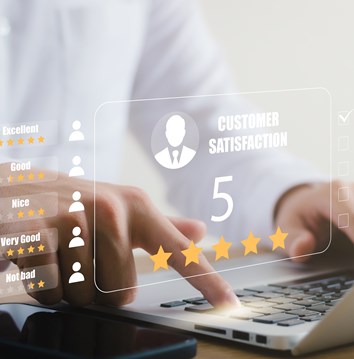
Accelerating growth in the animal health market
The humanisation of pets combined with an increased focus on preventing zoonotic diseases since the pandemic have been driving growth in the animal health market. Inflexion recently hosted a dinner to discuss sector trends, with six key takeaways highlighted.
Fur babies are the winning hearts and wallets of a growing number of people. A dataset reveals that consumer spending on pets has grown 36% in the US and 50% in the EU between 2018 and 2021. This spending may not abate as quickly as other sectors as the cost-of-living crisis bites, as other studies have revealed fairly inelastic demand for ensuring pet wellbeing.
There is also growing interest in the welfare of livestock and other animals, particularly as zoonotic diseases have come into firmer focus since the pandemic. The challenges of raising animals in a rapidly changing world has seen the value of the global animal health sector increase by 12% to $38.3 billion in 2021. Companies are focusing more on disease prevention products whilst increasing R&D in areas like diagnostics and digital technologies. The focus transcends pure profits and is supported by governments in the wake of the pandemic: In 2021, 26 countries agreed to a “One Health” approach to connect the health of humans, animals and the planet.
With such growth underway and expected to continue, what are the key themes for animal health?
- Technology in the sector has historically lagged human health. With a smaller but still significant end market (typically fragmented across species, etc.), innovations in human health have historically taken many years to reach the veterinary market.
- This was compounded by the divestment of animal health divisions by the large human health players. With Zoetis spun out of Pfizer, Elanco from Eli Lili (and then acquiring the Bayer animal health business), the leaders in veterinary pharma lost access to multi-billion-dollar human health R&D activities.
- The gap is now closing thanks to an energised start-up ecosystem. Technologies like Monoclonal Antibodies Gene therapy and selective animal breeding companies are moving more quickly into both companion and production animal space. In some cases, the lower regulatory barriers in animal health are allowing technologies to reach the veterinary pharma market in shorter timelines than in humans.
- Pricing in animal health remains more challenging than in the human market. Given the lack of government funding for therapies and the limited insurance coverage in many markets, prices that can be achieved are naturally lower than on the human side. For this reason, working with the corporate chains to promote the merits of higher cost therapies is key.
- Winners will increasingly need to rapidly scale novel technologies with proven use cases as competitive intensity increases and first-mover advantage is a key determinant of long-term market share. Where they can do so, companies should consider private equity as an alternative to an early trade-exit. Inflexion’s experience in the human healthcare market and as an investor in the UK’s largest branded veterinary chain positions us uniquely to support.
- Competition will drive consolidation in fragmented markets, and Medivet is a case in point. The veterinary chain reached incredible scale in just four years working in partnership with Inflexion. The team agreed minority funding in 2016 and then focused on improving service through digital means and consolidating a fragmented market. With the UK market already c70% consolidated, the last year of partnership saw an international push focused on France, Germany and Spain as they were still very fragmented.
Underpinning all this is a growing focus on data and harnessing it to accelerate innovation and support sales. The growth story of animal health data specialist Kynetec illustrates this. The firm was carved out of its parent by Inflexion in 2016 and then spent five years boosting its data capabilities through organic growth and five acquisitions, ultimately supporting EBITDA growth of 200%. Inflexion supported Kynetec to buy data as well as the Machine Learning and AI to develop this data and sell it on, boosting sales as the digitisation of the industry saw vets and farmers place greater value on big data.
Pet supplements market
The pet supplements market is also fragmented, and so offers scope for consolidation. Worth $2.3 billion globally in 2022, it is expected to reach $3.2 billion by 2028. It is estimated that more than 1,500 businesses exist in the US in the vet channel in the supplements space – though only 10 of these generate revenue of more than $5 million. In the UK there are more than 140 such businesses, but only five have a turnover of more than £1 million through vet channels. The businesses are varied, from small pet-specialist businesses to larger focused pharma companies such as Dechra and Zoetis through to international pharmas with a pet vertical, such as Boehringer Ingelheim and Bayer. Pet supplements are enjoying growing demand not just as the number of pet owners grows globally, but also as these people increasingly favour natural ingredients.
Lintbells is the number one pet supplements player in the UK and commanded a fifth of the UK pet supplements market worth £100 million in 2017 when Inflexion invested. The e-commerce platform has been crucial to increasing its client base: sales of supplements online increased substantially from 29% in 2019 to 42% in 2020. Management have been working with Inflexion on growing Lintbells’ UK market share, enhancing its digital presence, building its direct-to-consumer offer and growing overseas, particularly in North America.
Contact


